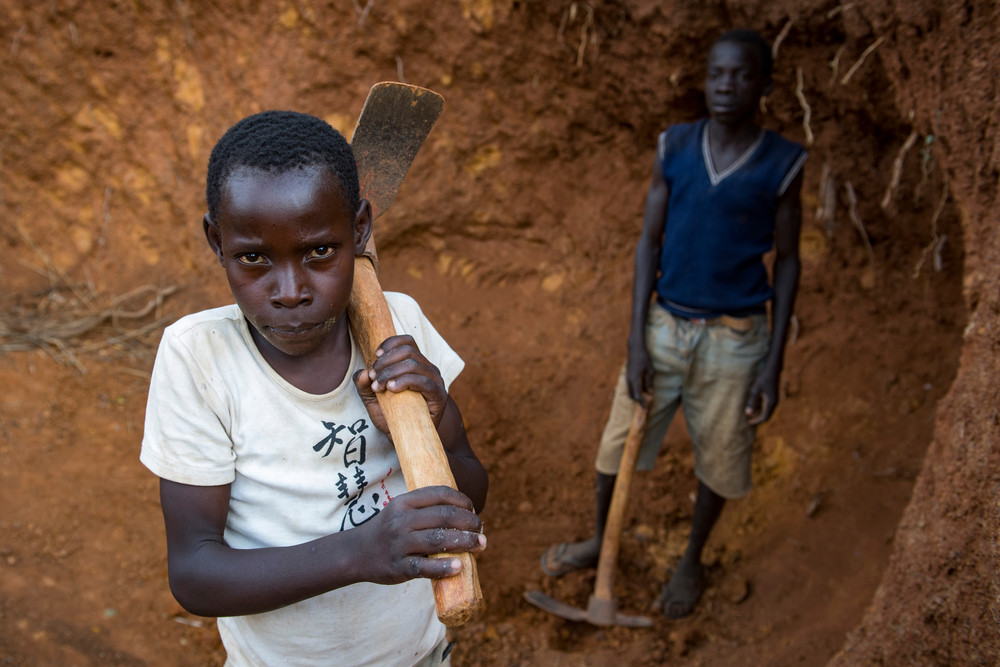Ressources
Agenda 2063 is Africa’s development blueprint to achieve inclusive and sustainable socio-economic development over a 50-year period.

L'UA offre des opportunités passionnantes pour s'impliquer dans la définition des politiques continentales et la mise en œuvre des programmes de développement qui ont un impact sur la vie des citoyens africains partout dans le monde. Pour en savoir plus, consultez les liens à droite.

Promouvoir la croissance et le développement économique de l'Afrique en se faisant le champion de l'inclusion des citoyens et du renforcement de la coopération et de l'intégration des États africains.

L'Agenda 2063 est le plan directeur et le plan directeur pour faire de l'Afrique la locomotive mondiale de l'avenir. C'est le cadre stratégique pour la réalisation de l'objectif de développement inclusif et durable de l'Afrique et une manifestation concrète de la volonté panafricaine d'unité, d'autodétermination, de liberté, de progrès et de prospérité collective poursuivie par le panafricanisme et la Renaissance africaine.

S.E. le Président William Samoei Ruto (PhD), Président de la République du Kenya et Champion de l'Union africaine pour la réforme institutionnelle. S.E. Ruto a été nommé lors de la 37ème Conférence des chefs d'État et de gouvernement en février 2024 pour promouvoir le processus de réforme institutionnelle de l'UA, succédant à S.E. Paul Kagame, Président de la République du Rwanda, qui a dirigé la mise en œuvre du processus de réforme depuis 2016.


L'UA offre des opportunités passionnantes pour s'impliquer dans la définition des politiques continentales et la mise en œuvre des programmes de développement qui ont un impact sur la vie des citoyens africains partout dans le monde. Pour en savoir plus, consultez les liens à droite.

Child labour, forced labour, human trafficking and modern slavery are grievous issues of concern throughout the world. According to the African Union Ten Year Action Plan on Eradication of Child Labour, Forced Labour, Human Trafficking and Modern Slavery in Africa (2020-2030), in 2016, a fifth of African children (72 million) were in child labour. Nearly half of them were in hazardous work. The continent had both the largest number of child labourers and the highest proportion of children in child labour among the major world regions.
The report stated that the number of victims of forced labour, human trafficking and modern slavery was also large: nearly 3 million adults and about half a million children were in forced labour; another 5.8 million people were in forced marriages. In general, women and girls are greatly affected by these forms of exploitation.
Africa has worked relentlessly to fight these scourges, which typically afflict the most vulnerable populations on the continent. The scourges have long been targeted for eradication by a number of continental legal instruments and policy frameworks, notably the African Charter on Human and Peoples’ Rights and the African Charter on the Rights and Welfare of the Child.
In February 2020, African Heads of States and Government adopted the Ten Year Action Plan to Eradicate Child Labour, Forced Labour, Human Trafficking and Modern Slavery (2020- 2030). This Action Plan provides an immediate framework for mobilizing African Union institutions, Member States, Regional Economic Communities (RECs) and other partners on the continent to scale up efforts and accelerate progress towards the achievement of the AU Agenda 2063, and target 8.7 of the Sustainable Development Goals, SDGs. This involves ending child labour by 2025 and forced labour, human trafficking and modern slavery by 2030. The Action Plan focuses on a critical set of interventions that can bring rapid results. It also specifies primary implementation responsibilities between country, regional and continental levels.
The continent has also achieved near-universal ratification of the international conventions on forced labour, human trafficking and child labour, along with the UN Convention on the Rights of the Child. The Sustainable Development Goal (SDG) 8.7 target which is “Take immediate and effective measures to eradicate forced labour, end modern slavery and human trafficking and secure the prohibition and elimination of the worst forms of child labour, including recruitment and use of child soldiers, and by 2025 end child labour in all its forms” has corresponding targets in Africa’s Agenda 2063, under Aspiration 6, Goal 18 i.e. “Engaged and empowered youth and children”.
Targets for Goal 18 in the Agenda 2063 First Ten-Year Implementation Plan include ending all forms of violence, child labour exploitation, child marriage, human trafficking and recruitment of child soldiers. Moreover, Africa made substantial inputs into the SDG preparation process, including the submission of the Common African Position of the Post-2015 Development Agenda, prepared after broad-based consultations across the continent, and which, among others, called for measures against child labour and human trafficking. Recognizing the close linkages between these scourges and their underlying causes, there is a need to bring them under a common policy framework to build policy coherence and synergy at national, regional and continental levels. The AU is committed to accelerating the achievement of SDG 8.7 in line with its policy frameworks and legal instruments, and to using its political and convening capacities to drive greater coordination of implementation efforts across the continent.
United Nations member States have also renewed their commitment, with the adoption of UN Resolution 72/327 that declares 2021 as the International Year for the Elimination of Child Labour. The global community fighting child labour and forced labour will need to address the challenges posed by COVID-19 and accelerate progress towards the Sustainable Development Goals (SDGs) targets in 2025 and 2030. The 2021 international year will propel momentum towards the V Global Conference on Child Labour (VGC) that will take place in South Africa in 2022, where stakeholders will share experiences and make additional commitments towards ending child labour in all its forms by 2025, and forced labour, human trafficking and modern slavery by 2030.
Read more about Child Labour Action Plan @ https://au.int/sites/default/files/newsevents/workingdocuments/40112-wd-child_labour_action_plan-final-english.pdf https://au.int/en/newsevents/20210331/launch-international-year-elimination-child-labour-africa-and-accelerate
Agenda 2063 is Africa’s development blueprint to achieve inclusive and sustainable socio-economic development over a 50-year period.
AUSSOM Ministerial Meeting report
